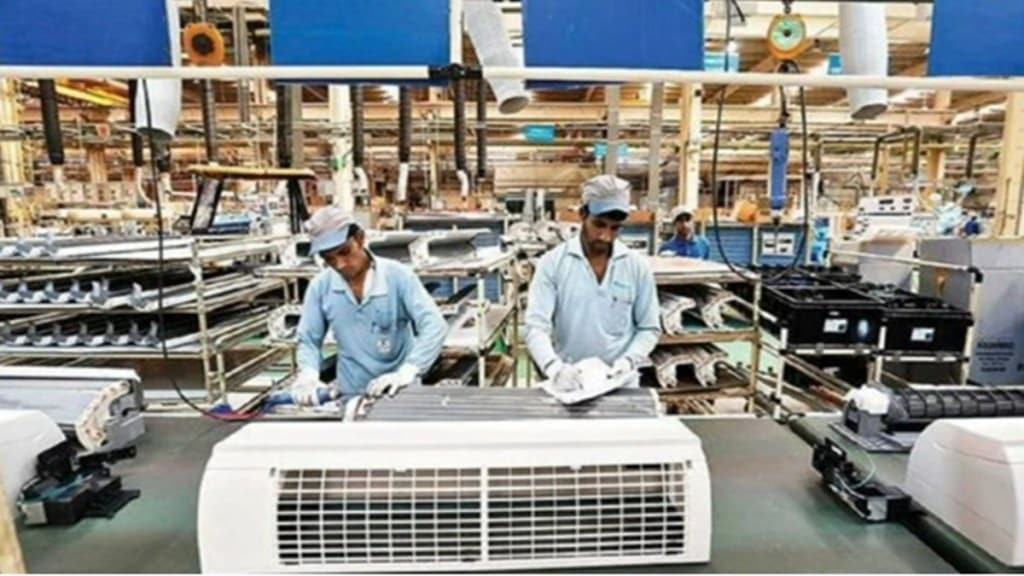By Kanwaljeet Jawa
The HVAC (heating, ventilation, and air conditioning) industry in India has been experiencing steady growth in recent years. According to a report by ResearchAndMarkets.com, the Indian HVAC market is expected to grow at a compound annual growth rate (CAGR) of around 7.5 percent between 2021 and 2026. As we enter 2023, various developing technologies demand mastery from HVAC specialists.
The HVAC sector in India is experiencing rapid changes, necessitating HVAC specialists to stay current with the newest technologies and expertise to maintain a competitive edge. This article highlights the essential technologies and expertise that Indian HVAC specialists should acquire.
Intelligent Temperature Sensing Devices
Another developing technology that Indian HVAC specialists must grasp is intelligent temperature sensing devices. These devices optimize heating and cooling in buildings by learning users’ behaviours and preferences. They can also be remotely controlled via smartphones or tablets, enabling users to adjust temperatures from any location. HVAC specialists must comprehend intelligent temperature sensing devices’ functionality and installation and programming processes while being able to troubleshoot any issues.
Virtual Reality-Based Learning
Virtual reality-based learning is an on-demand interactive training method available to all at their convenient times which allows HVAC specialists to learn & upgrade their knowledge within a simulated environment. This technology grants hands-on experience in a secure, controlled setting, helping professionals develop their skills and knowledge & is primarily beneficial in sensitive applications like Brazing or the use of gases in pressurized containers. Virtual reality training can simulate HVAC installation, maintenance, and repair situations, enabling specialists to hone their abilities before handling actual equipment. HVAC professionals must adopt virtual reality training to remain competitive & upgrade their skills.
Eco-Friendly HVAC Solutions
Sustainability has become a significant trend in the HVAC industry in recent years. The growing demand for energy-efficient and eco-friendly options requires HVAC specialists to excel in sustainable HVAC solutions. Such systems employ renewable energy sources like solar power, geothermal energy, and air-source heat pumps to minimize carbon emissions and energy usage. HVAC specialists must deeply comprehend sustainable HVAC solutions, including their operation, design, installation, and maintenance.
Ground-breaking Insulation Materials
Another developing technology that HVAC specialists must grasp is ground-breaking insulation materials. These materials offer excellent insulation while being eco-friendly and energy-efficient. Some examples include aerogel, vacuum-insulated panels, and phase-change materials. HVAC professionals must understand these materials’ workings and installation and maintenance processes.
Cloud-Based Data Analysis
Cloud-based data analysis is an advanced application that should be high on the list of HVAC specialists to comprehend & adopt. This technology allows professionals to gather and analyze HVAC system data in real time, enabling them to proactively identify and address issues before they escalate. Cloud-based data also aid the optimization of HVAC systems for energy efficiency and cost savings & is an important parameter in Sustainability index rankings. HVAC professionals must make an effort to understand cloud-based data analysis operations and their applications for enhancing HVAC system performance so it’s a win-win for all.
Also read: Demand for air conditioners surges in India! What is the logic behind the AC boom? Know in details
In conclusion, as we progress into 2023, Indian HVAC professionals must keep pace with the rapidly evolving industry by embracing and mastering the latest technologies and skills. It’s important for HVAC professionals to engage in continuous learning, attend relevant training programs, and stay updated with industry advancements to remain competitive in the evolving landscape. By staying current and proficient in these areas, HVAC specialists in India will be better equipped to meet the growing demands for energy-efficient, environmentally friendly, and technologically advanced HVAC systems, ensuring their continued success and competitiveness in the field.
(The author is chairman and MD, Daikin India. Views expressed are personal.)

